Obtaining
Obtaining is the process of acquiring or gaining something. In science, obtaining refers to the collection of data or materials through experiments, observations, or research. It is a crucial step in the scientific method as it involves gathering evidence and information to support or refute a hypothesis.
Methods of Obtaining in Science
- Experimentation: Conducting controlled experiments to collect data and test hypotheses.
- Observation: Using the senses or instruments to gather information about natural phenomena.
- Research: Reviewing existing literature, studies, and data to obtain information relevant to the investigation.
- Data Collection: Gathering measurements, observations, and other relevant information through various means.
Study Guide
When studying the concept of obtaining in science, it is important to understand the following key points:
- The significance of obtaining accurate and reliable data in scientific investigations.
- The different methods used for obtaining information, such as experimentation, observation, and research.
- How to design and conduct experiments to effectively obtain data that can be analyzed and interpreted.
- The ethical considerations involved in obtaining data, including the responsible treatment of research subjects and the proper use of existing information.
Understanding the process of obtaining in science is essential for conducting valid and meaningful research, and for drawing accurate conclusions based on evidence.
.◂Science Worksheets and Study Guides Sixth Grade. Weather patterns
Study Guide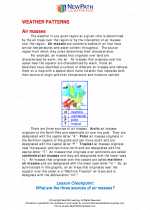 Weather patterns
Weather patterns  Worksheet/Answer key
Worksheet/Answer key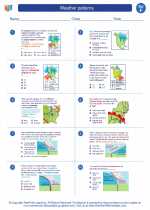 Weather patterns
Weather patterns  Worksheet/Answer key
Worksheet/Answer key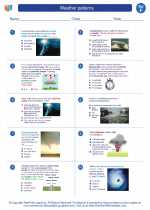 Weather patterns
Weather patterns  Worksheet/Answer key
Worksheet/Answer key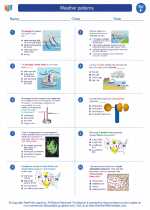 Weather patterns
Weather patterns  Vocabulary/Answer key
Vocabulary/Answer key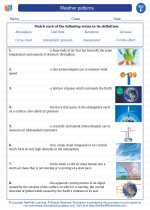 Weather patterns
Weather patterns  Vocabulary/Answer key
Vocabulary/Answer key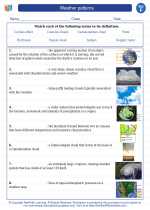 Weather patterns
Weather patterns  Vocabulary/Answer key
Vocabulary/Answer key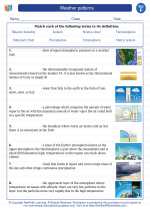 Weather patterns
Weather patterns  Vocabulary/Answer key
Vocabulary/Answer key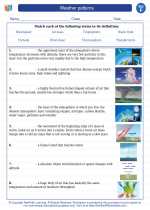 Weather patterns
Weather patterns 

 Worksheet/Answer key
Worksheet/Answer key
 Worksheet/Answer key
Worksheet/Answer key
 Worksheet/Answer key
Worksheet/Answer key
 Vocabulary/Answer key
Vocabulary/Answer key
 Vocabulary/Answer key
Vocabulary/Answer key
 Vocabulary/Answer key
Vocabulary/Answer key
 Vocabulary/Answer key
Vocabulary/Answer key

The resources above cover the following skills:
EARTH AND SPACE SCIENCE
Earth’s Systems
Integrate qualitative scientific and technical information (e.g., weather maps; diagrams; other visualizations, including radar and computer simulations) to support the claim that motions and complex interactions of air masses result in changes in weather conditions.